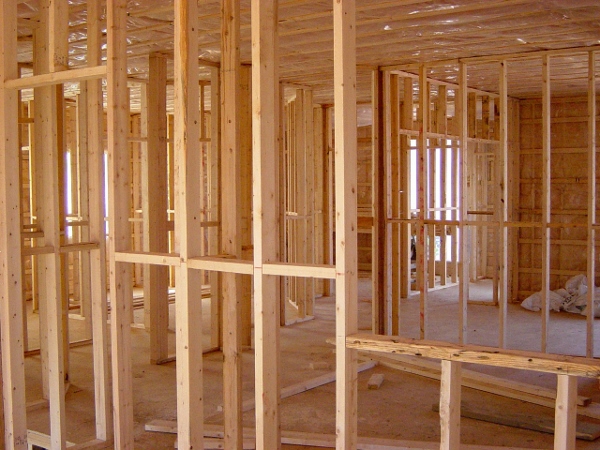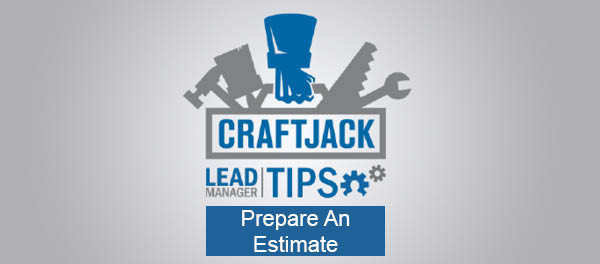How To Bid Out A Roofing Job

Roofing is a business that truly needs a pro’s expertise. As a necessity of the home, it’s important that your work is well done. From fixing missing shingles to installing a new roof, homeowners rely on you to ensure their homes stay comfortable and dry.
When taking on a new roofing project, you may need to bid out parts of the job. It’s important to ask the right questions and hire subcontractors you can trust. After all, roofing can sometimes be dangerous work and you want to avoid any issues that can put you or your business in jeopardy. Here are few tips to help you bid out a roofing job.
Are you ready to start winning more roofing jobs? Sign up with CraftJack today to start receiving leads in real time.

Hiring A Roofing Subcontractor
Depending on the type of roofing job, you may need to hire out a roofing sub-contractor to help with the project. This is typical in bigger projects. If you plan on bidding out parts of the job, be sure include that in the estimate. However, to make a profit, you’ll need to add 10% to 20% on top of the cost of the subcontractor.
License & Insurance
For any contractor in any trade, having appropriate licenses and insurance is one of the most important things to have before starting any job. As a business owner, insurance is for yourself, however, this does not carry over to any subcontractors you hire. Ask to see proof of insurance. If an accident happens, you don’t want to be liable.
Also, check your state and local requirements when it comes to licenses. For roofing pros specifically, this can vary city to city and can get confusing. Understand the licenses you need for your business and what licenses your subcontractors will need to do the job, before hiring.

Experience In The Trade
A big concern when bidding out a roofing job is finding someone with the right level of experience. Because roofing work takes skill and training, you want to be sure you’re getting a subcontractor who knows what they’re doing. Ask for any references or previous projects they have worked on. Ask questions about their work and the final project that was done.
Be Open With Your Customer
Customers who are not familiar with subcontractors may be concerned and have questions about the process. If they come out to see the work they thought was being done by you, is actually being done by another person, they can lose trust in your company. It’s important to be upfront and honest about who will be doing the work and what role you will play in it. Answer any questions they might have about the subcontractors.
Get It In Writing
When you have chosen who you will hire as your subcontractor, be sure to get an agreement in writing. You should include the description of the work that is expected, communication policies, payment information, who is responsible for any issues with work and when the project is scheduled to start and end.
Do your best to be as detailed as possible here. If an issue comes up, it’s a way to hold the appropriate party accountable. The more information you have, the easier the communication between you and the subcontractor will be.

Ensure Project Quality
As hard as you try to hire for experience, customers may be concerned about the quality of work they are getting. After all, a roof tends to be a fairly large investment that impacts the overall well-being of the home. It’s extremely important that you ensure each subcontractor has the necessary experience needed to complete the project seamlessly. You can also go over a few company standards.
Job Site Etiquette
The subcontractor you choose to hire will now be representing your company. Review any etiquette standards and rules that are specific to your company policy. Many contractors have a policy about subcontractor and client communication, such as reporting problems or offering work. Be sure the contractor understands this policy thoroughly to avoid any miscommunication.
Cleaning Up & Security
At the end of the day, a messy job site is representative of your company, regardless of who created it. Review any end of the day clean up policies.
Additionally, if the subcontractor will be using any of your materials, show them how you’d like them left at the end of the day and any security procedures you have for larger items.
Project Completion
When their work is finished, always inspect their work thoroughly. After all, any issues will reflect on your business. If you are able catch an issue, talk to the subcontractor about the work, as you should’ve included work expectations in your agreement. It’s always best to discuss with the subcontractor before they head out for their final day on the job. Try to find a solution to the problem. If you have more work waiting on this project, be sure to complete the repair before moving ahead to stay on schedule.
Paying Your Subcontractor
When their work is done or the job is complete, be sure to pay your subcontractor as stated in your written agreement. Pay them on time and as you had agreed upon. If there is an issue with payment, be upfront with them about the reasoning and see if you can reach a solution that works for both parties.
Conclusion
A roofing job is a big deal for all parties involved. As a roofing pro, it takes time and the right crew to get the final product both you and the homeowner desire. Ensure that the quality is to your standards with the help of subcontractors by following these tips.



